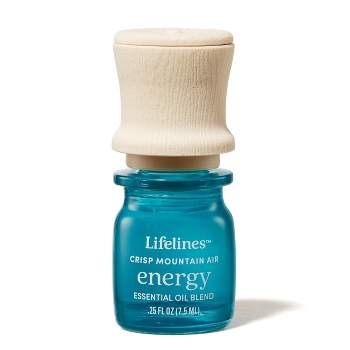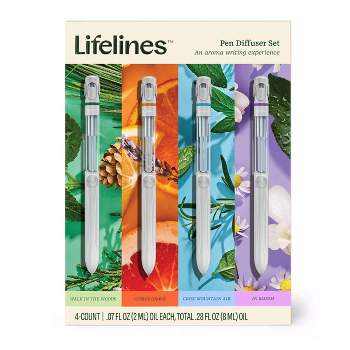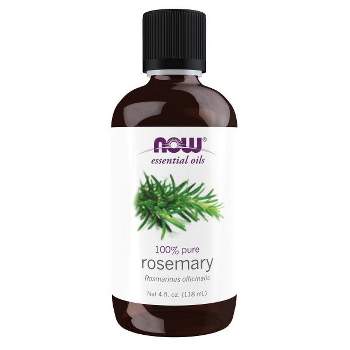Rosemary : Essential Oils & Aromatherapy
Sponsored
14 results
Sponsored
Sponsored
Related categories
Related searches
Rosemary : Essential Oils & Aromatherapy
Essential oils have been used for centuries as a part of aromatherapy practices across the globe. The most common way to use them is to inhale the scent, either directly from the bottle or using a diffuser or humidifier. Target has you covered with a variety of essential oils & everything you need to know to use them to promote relaxation & holistic wellbeing.
What Are Essential Oils?
Essential oils are made of natural compounds extracted from plants. They are mostly made from a plant’s flowers, leaves, or roots, but they may be created from other plant parts as well. Essential oils were traditionally made using a distillation method that used steam or water. Nowadays, mechanical methods such as cold pressing are becoming increasingly popular. These processes make it possible to extract the essence of the plant, helping create an even purer variety of essential oils. Essential oils retain the characteristic scent and properties of the plant, and are highly concentrated in nature. Usually, the plant extracts are then combined with a carrier oil to dilute them and make them more usable for aromatherapy. In fact, essential oils can be up to 75 times more potent than a dried herb! While they are thought to have therapeutic benefits and many people find these products helpful, essential oils should always be used carefully & in moderation.
How to Use Essential Oils?
Essential oils are very potent & knowing how to use them safely is important. Firstly, essential oils are only meant for topical use & should not be ingested. Some essential oils are known to be beneficial for dry skin & can help hydrate & nourish your skin. But they need to be diluted in a carrier oil before they can be applied to the skin. Mixing essential oils with a carrier oil before applying to your skin is an important safety practice because it can help reduce the possibility of allergies or irritation. It also helps make your essential oils last longer, giving you a greater value per bottle. For people with sensitive skin, it might be a good idea to do a skin test before using essential oils topically. Simply apply a small amount of the diluted essential oil to your wrist and wait for 24 hours to see if a reaction occurs. If you develop a headache or any type of skin irritation, you should immediately consult a doctor.
If you don’t feel comfortable applying essential oils directly to your skin, you can use them as part of an aromatherapy practice. Using an essential oils diffuser, you can perfume the air in your home or office with the scented oils of your choice. For many people, this is a helpful way to destress and relax. If you don’t want to invest in a diffuser, try putting a small amount of essential oil onto a cotton ball and placing it on your desk or windowsill. If you are only smelling the essential oils, there is no need to dilute them in a carrier oil first. However, not all essential oils are safe for pets to inhale. Check with your animal’s veterinarian before using essential oil diffusers in your home to determine what essential oils are safe for dogs and cats..
What Are The Benefits Of Essential Oils?
Now that you know how to use essential oils safely, you are ready to learn what essential oils are good for!
The biggest benefit of essential oils appears to be their ability to help people relax and unwind. If you have a lot of stress, calming essential oils may be able to help. Some of the best essential oils for anxiety include lavender, chamomile, clary sage, and ylang ylang. Essential oils for sleep include many of the same scents. In general, any calming scent will be helpful for stress relief and promoting sleep. Some people also use essential oils for headaches. Peppermint essential oil is very popular for potentially alleviating headaches because it contains menthol. To use, dilute the peppermint essential oil in a carrier oil and apply it to your temples. Rosemary oil is another popular choice for dealing with headaches or migraines. It is thought that even just inhaling the scent can help to reduce pain. Do you struggle with nausea? One of the most popular essential oils for nausea is ginger. In clinical studies, ginger essential oil was shown to help control nausea and motion sickness. You can either diffuse the essential oil into your room or dilute it and rub it onto your pulse points to find relief.













